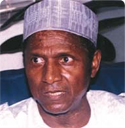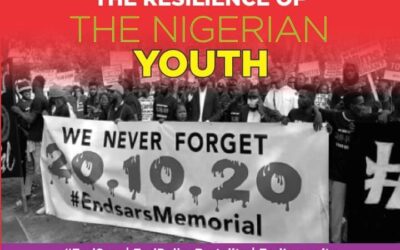Even though he admits that Africa's development lies in the hands of its people, President Umaru Yar'Adua has called for a Marshall Plan for the continent's advancement.
Marshall Plan is the catch-all name for the plan with which Europe was rebuilt after the World War II.
At the third Africa Forum, which ended in Wiesbaden, Germany yesterday, Yar'Adua said the entire concept of aid to Africa by the developed nations needed to be "re-thought" because it is apparent that such interventions "are usually too little, most times mis-directed and generally do not make much of a difference."
An economic emergency plan, Yar'Adua stressed is urgently needed to boost the efforts of African leaders to develop the region. The President said: "This Forum is a veritably apt platform for laying the foundation of another Berlin Conference, this time to work out the details of the plan to rebuild Africa's infrastructure and, most importantly, to operationalise an initiative that should allow the nations of sub-Saharan Africa export Everything But Arms (EBA) to the Organisation of Economic Co-operation and Development (OECD) nations completely free of duties."
Yar'Adua spoke at the serene Eberbach monastery by the foot of Eltville rural community where five other African leaders and the German President, Horst Kohler gathered to search for the way forward as the world grapples with the development problems.
The President, who spoke on the challenges of globalisation, stated that his idea of a Marshal Plan for Africa could also be along the lines of the European Recovery Programme employed by the United States (U.S.) to rebuild the nations of Europe devastated by the World War II.
He said that Africa needed such a bold plan for its regeneration after "decades of destruction engendered by forced partitioning and many years of self-inflicted ruins".
In making the call for greater international support for Africa's efforts to "catch up" with the developed nations of the world, the Nigerian leader admitted that in the end, Africa's development must be championed by Africans themselves.
"I must stress the fact that, ultimately, Africa's development must be championed by Africans themselves; no one from outside the continent is coming to face up to our developmental challenges on our behalf. We must commit to strengthening governance institutions and structures."
He continued further: "Endemic corruption, which has seen the distortion of our core values and the diversion of scarce resources from their development targets to private hands, must be tackled head-on. Most critically, Africa must evolve a crop of focused, committed, service-oriented, and God-fearing leaders to drive the continent's rebirth,"
Yar'Adua told the gathering that his administration was anchoring its pursuit of a re-energised, stable and prosperous Nigeria on the entrenchment of the fundamental principles of democracy, good governance, free enterprise and the rule of law.
"These principles underlie our covenant with the people of Nigeria, which is encapsulated in our seven-point agenda – our short to medium term responses to the challenges inherent in Nigeria's desire to belong to the club of the world's biggest economies by 2020.
"We recognise that the imperative to rapidly regenerate our economy can only be bolstered by continent-wide, focused economic and political reform. This informs our desire to drive greater integration and broaden regional co-operation on the continent so as to create and sustain the requisite macro-economic and financial conditions for a globally competitive regional economy," he said.
To African leaders, Yar'Adua asked them to pay greater attention to emerging trends in the New World order and the possible effects on their economies. He said that it was high time answers were sought to the puzzle of how to effectively tackle the challenges of globalisation.
In his message, Kohler said: "In a world that is growing closer together, we are all dependent on one another. No state or group of states can secure its own prosperity by going it alone. That is why I am committed to co-operation with Africa on the basis of partnership. Let us look towards the continent through other eyes. It is a continent of the future."
Other African leaders who attended the event are Presidents Festus Mogae of Botswana, Armando Guebuza (Mozambique), Thomas Boni Yayi (Benin) and Marc Ravalomanana (Madagascar). There was also the Asantehene from Ghana, Otumfuo Osei Tutu II.
On the Nigerian delegation were the Minister of Foreign Affairs Chief Ojo Maduekwe, the Senior Special Adviser on Foreign Relations Ambassador, Daniel Hart, Nigeria's envoy to Germany, Abdul Bin Rimdap and Presidential spokesman Olusegun Adeniyi.
The presidents of Ghana, South Africa and Egypt did not attend the conference. They reportedly withdrew their participation. No reasons have been given for the action. The first German-Africa forum was held in Bonn in 2005 while the second was held January this year in Ghana.
From Oghogho Obayuwana, Germany
The Guardian
Monda, November 5, 2007




